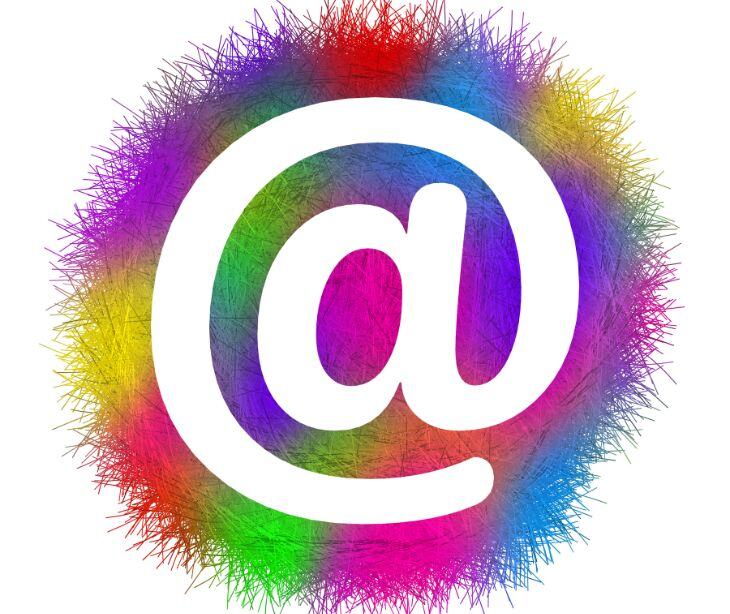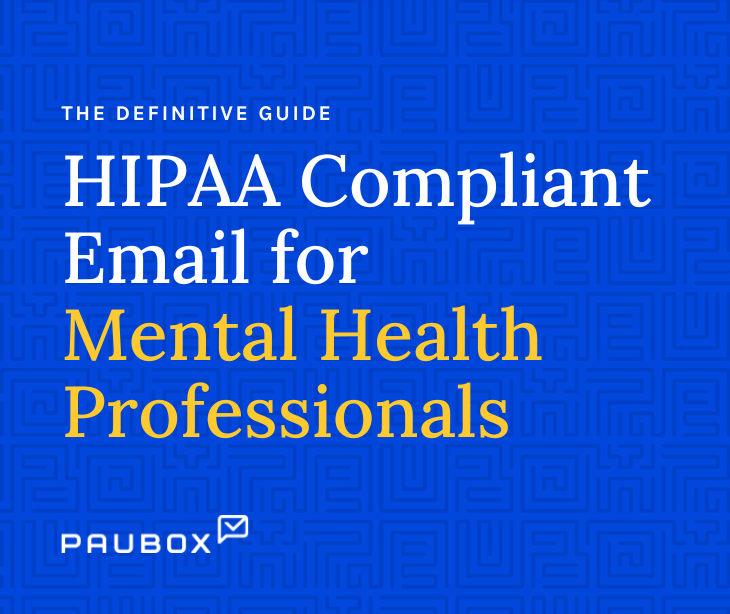2 min read
Ways therapists can use personalized HIPAA compliant emails
Caitlin Anthoney August 01, 2024

Therapists must use HIPAA compliant emails to communicate with their clients. These emails can include personalized interventions that improve mental health outcomes while protecting health information.
What are HIPAA compliant emails?
The Health Insurance Portability and Accountability Act (HIPAA) protections extend to all forms of health information, including mental health information shared via email.
So, therapists must use a HIPAA compliant email solution to safeguard protected health information (PHI). CounselingWise states, “Any messages you send as a therapist need to come from a HIPAA compliant email, even if the messages themselves aren’t confidential.”
Specifically, HIPAA compliant emails use encryption, access controls, authentication, and other security measures to protect PHI from unauthorized access or data breaches.
It also upholds the HIPAA Privacy Rule on sharing mental health information that states, "Ensuring strong privacy protections is critical to maintaining individuals' trust in their health care providers and willingness to obtain needed health care services, and these protections are especially important where very sensitive information is concerned, such as mental health information."
Personalized HIPAA compliant emails
Therapists can use HIPAA compliant emails to send personalized exercises and resources to clients, allowing for ongoing support and guidance outside traditional therapy sessions.
These emails can help patients get mental health treatment without fear of privacy breaches and are proven to improve mental health long-term.
Cognitive behavioral therapy (CBT)
HIPAA compliant emails allow therapists to send personalized CBT strategies, encouraging clients to reflect on their automatic thoughts and emotional responses in specific situations.
Therapists can also assign CBT homework so clients can identify cognitive distortions and reframe their thinking patterns to improve their overall well-being.
Art therapy interventions
Therapists can use HIPAA compliant emails to send clients creative assignments and resources, like drawing prompts, motivating them to continue their therapeutic work outside of sessions.
Clients can then reply with their artwork or progress updates, and therapists can adjust their art therapy interventions accordingly.
Mindfulness techniques
HIPAA compliant emails can include personalized guided meditation scripts so clients can practice mindfulness techniques at their pace. Clients can also refer to these emails whenever they need to manage stress and anxiety in their daily lives.
Additionally, therapists can email infographics on the benefits of mindfulness and provide secure links to resources for further reading on the topic.
Guided imagery techniques
Therapists can include guided imagery techniques in their secure emails, promoting relaxation and providing emotional support to their clients. Therapists can also send clients summaries of their in-person guided imagery sessions to reinforce the technique.
Ecotherapy
HIPAA compliant emails can share articles about the benefits of nature on mental health, enhancing the therapeutic process while maintaining client confidentiality.
Therapists can also send clients journaling assignments about outdoor experiences, encouraging clients to engage with nature.
Eclectic therapy
Therapists who use an eclectic approach can use HIPAA compliant emails to share personalized treatment plans so clients can manage triggers, process emotions, and improve overall well-being.
Additionally, HIPAA compliant emails allow regular check-ins so therapists can assess clients’ psychosocial well-being for a more comprehensive approach.
ABA therapy
Therapists can use HIPAA compliant emails to send and receive behavioral data tracking sheets during Applied behavior analysis (ABA) therapy, monitoring progress without compromising privacy.
HIPAA compliant emails also allow therapists to communicate with the parents of children receiving ABA therapy, sharing strategies and progress updates securely.
FAQs
Does HIPAA apply to mental health information?
HIPAA sets standards for protecting the confidentiality, integrity, and availability of protected health information (PHI), including mental health records.
Can therapists use regular email to communicate with clients?
No, therapists must use a HIPAA compliant platform, like Paubox, that uses advanced security measures, safeguarding protected health information (PHI) during transit and at rest.
Can HIPAA compliant emails include attachments?
Yes, therapists can send attachments, like PDFs and documents, using a HIPAA compliant emailing platform, like Paubox, which automatically encrypts emails and their attachments.
Subscribe to Paubox Weekly
Every Friday we'll bring you the most important news from Paubox. Our aim is to make you smarter, faster.



